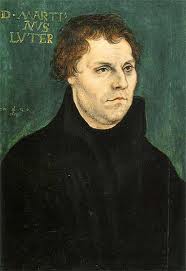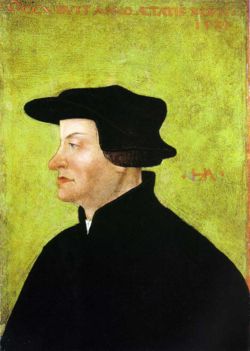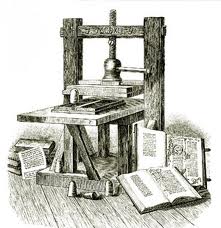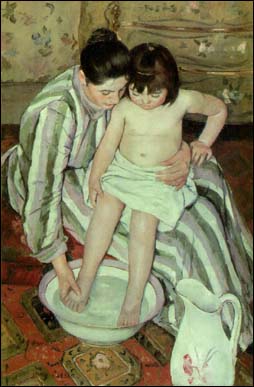Ex Church of Christ support groupHome * Website Purpose * History * UnBiblical Teachings * Spiritual Abuse Jesus' View of God * Faith & Works * New Covenant * The Pattern * Romans 14 |
|
|
_____________________________________________ Speaking where the Bible speaks, and silent where the Bible is silent. (About 20% of Churches of Christ keep the following rules strictly.) 1. In the book and website The Thunderous Silence of God, the author argues that we are to establish whether musical instruments are authorized in worship to God by This method of establishing authority is based on a mistaken premise: There must be a rulebook in the New Testament for the work, worship and organization of the local congregation. The practice of establishing authority by command, apostolic example and necessary inference, is a doctrine that descends from the reformed Presbyterians (Alexander Campbell). Why would one think that there has to be a rulebook for the church? Where did this idea come from? Certainly not from the New Testament. Jesus never worried about rules for worship either in the synagogue or in the coming church that he was establishing. The only teaching we have from Jesus about church life is when Jesus tells people how to draw the line on troublesome people (Matt. 18:15-17). When the woman at the well asked Jesus about where a follower of Jahweh should worship, at this mountain (as her people taught) or in Jerusalem (as the Jews taught), Jesus brushed the question off as of little importance (John 4). If Jesus was interested in congregational work and worship, why did he never ever comment on it? Jesus said quite a bit, none of it about congregational work and worship. Anyone who wants to be the church of Christ should pay attention to that fact.
Thomas Olbricht states that Luther's way of interpreting the scriptures was Christocentric: all theology and doctrines had to point to or originate with Christ. Two years after Martin Luther n Ulrich Zwingli was extremely influential in the churches of Scotland and England. One of Zwingli's disciples became a professor in the main seminary in England training ministers in the Church of England. Puritans (who later became the Pilgrims of America, and later the Congregational Church) followed Zwingli's teachings (as well as Calvin's).
John Calvin ruled Geneva, Switzerland strictly. Thomas Olbricht states that Zwingli and Calvin's theology and way of interpreting the scriptures centered around purifying the church. 3. The Presbyterian Church arose in Scotland and northern Ireland out of John Knox's teaching. John Knox was a follower of John Calvin. By the time of Thomas and Alexander Campbell, there had been divisions in the Presbyterian Church over whether the ruler of the city (burgh) was also the ruler of the congregation (as Calvin was both spiritual and political head of Geneva). Thus the Campbells were part of the Anti-burghers (actually the Old Light Seceder Anti-burgher Presbyterian Church). A dash of John Calvin's authoritarian rule of Geneva, a teaspoon of DesCartes, a tablespoon of Francis Bacon's logic, and a cup from the American Declaration of Independence and Voila! you have the soufflè of the Churches of Christ.
4. So what does this have to do with the hard-line Churches of Christ looking for a rulebook? Everything. The lawyer attitude of John Calvin, the ruler of Geneva, opposition to the Catholic Church's monopoly on salvation, and the need to include or exclude people who take communion, all of these ideas went into the attitude of reading the scriptures with a presupposition. Calvin wanted to purify the Church, the church's worship and way of salvation. The presuppositions arose from each person's point of view:
When confronted with this argument, members of the hard line churches of Christ usually say that there were things in the OT that were authorized orally by God to prophets that were never written down. Yet Jesus and all of the OT prophets always appealed to the written scriptures, never to oral tradition for authority. 6. The hard-line Churches of Christ are quite happy to have a God who switches rules without logic, from the OT to the NT. Even though they use logic to figure out the rules; the logic is divested of its intuitive sense. Some are even proud of this counterintuitive paranoia. ("God has a reason that we may not know about.") This presupposition is foreshadowed in Calvin's view of a god who pre-determines who will be saved and lost, and there is nothing you can do about it. 7. The hard-line Churches of Christ also don't seem to find it strange that God would hide his rulebook in a history of the early Church. It does not seem odd to some churches of Christ that the rules for the Israelites were clearly laid out in the Law of Moses, but now in the New Testament we have to carefully sift out the rules from the examples and expediences with the skill of paranoid lawyers. ("To be safe we must not use instrumental music.") 8. If we take away the presuppositions then what do we have? We have Jesus who tells us how to love one another and describes to us the character of God. Then we read a history (in the book of Acts) of how the early church responded to the Word made flesh. That's all. It is not a rule book. It is not a restriction. It is an account of how they responded to God. We may respond differently. When we make this argument to hard-line CoCers, they are horrified: The answers: The Churches of Christ need to stop trying to find or create the perfect work, worship and organization of the church, and focus on Christ and what Christ asked for. |
The practice of establishing authority by command, apostolic example and necessary inference, is a doctrine that descends from the reformed Presbyterians (Alexander Campbell) and The Scottish School of Common Sense. See here for Pharisees and Instrumental Music. *Earlier protesters and reformers of the Roman Catholic Church include the Waldensians of Italy (800 A.D.) and England (1120 A.D.). Jesus never worried about rules for worship either in the synagogue or in the coming church that he was establishing. "The New Testament is as perfect a constitution for the worship, discipline, and government of the New Testament Church, and as perfect a rule for the particular duties of its members, as the Old Testament was for the worship, discipline, and government of the Old Testament Church, and the particular duties of its members." "Using the New Testament as our blueprint we have reestablished in the twentieth century Christ's church. " --Batsell Barrett Baxter and Carroll Ellis in Neither Catholic, Protestant nor Jew For a page on Prooftexting click here. The presuppositions arose from each person's point of view. There is no authority for the establishment of the Jewish synagogue anywhere in the Bible. The entire Bible is "silent" about the organization of the synagogue. Why would God hide his rulebook in a history of the early Church? For more on Contextless Prooftext Sermons click here. The history of the early church is not a rule book. It is not a restriction. It is an account of how they responded to God. We may respond differently.
For more on Black-and-White thinking click here. For more on Stages of Faith click here. What does the New Testament claim to be? Click here for a Legalism Questionnaire Was Jesus pleased that Americans around 1840 ignored the human trafficking of slave labor and concubines, and ignored the land grab and genocide of Native Americans, and focused on reproducing the exact worship service of the early church? Is Jesus pleased today if we continue that tradition? |
 2. The Reformation was popularized* by
2. The Reformation was popularized* by  ailed the 95 theses to the church door, a church salesman started selling indulgences in Zurich, Switzerland, which
ailed the 95 theses to the church door, a church salesman started selling indulgences in Zurich, Switzerland, which

 One of Calvin's first acts was to have
One of Calvin's first acts was to have  5. The early organization of congregations in the New Testament
5. The early organization of congregations in the New Testament 
